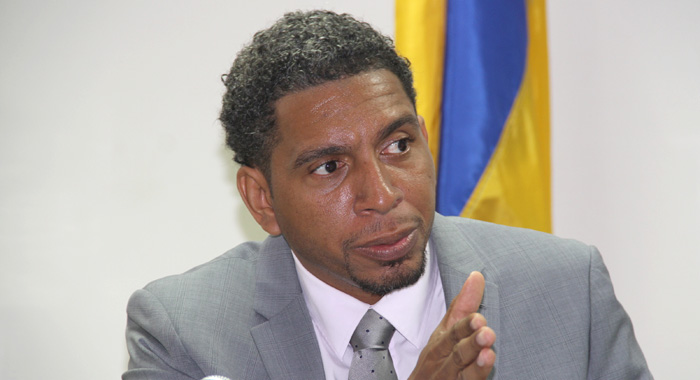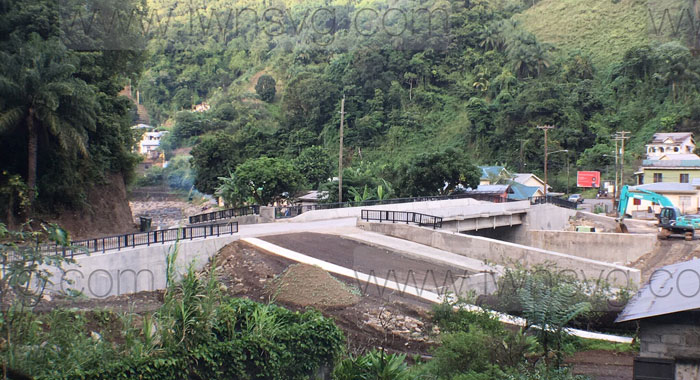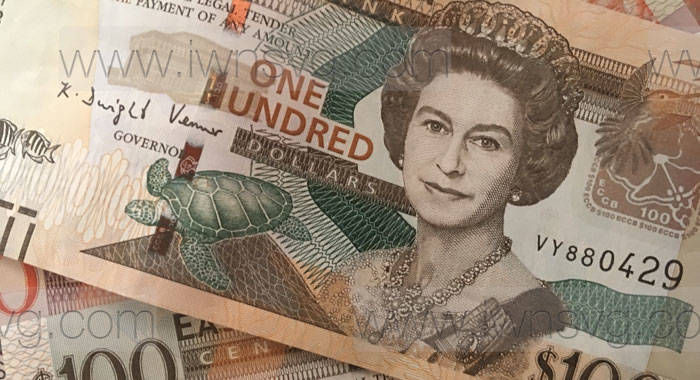There was “a mixed picture” of the Vincentian economy at the end of November 2017, with year-on-year increases in both revenue and expenditure, the new Minister of Finance has told labour unions.
“We have done a lot better this year in raising money. We have done much better this year in raising money. Our revenue has gone up this year and our revenue is up by 4.1 per cent over the same time, last year November,” Camillo Gonsalves told union representatives in his closed-door budget consultation in December 2017, a record of which has been obtained by iWitness News.
As of the end of November 2017, current revenue stood at EC$523 million — EC$20 million more than the same period in 2016.
Total revenue and grants had gone up 6.1 per cent, moving from EC$522 million to EC$554 million.
“So that’s the good news. We are up 6.1 per cent for the revenue,” said Gonsalves who is preparing to present, in late January, his first Budget as Minister of Finance.
He, however, said that on the other side of the ledger, expenditure has outpaced revenue.
“So while we went up 6.1 per cent revenue and grants, we have gone up 8.6 per cent for expenditure — 9.6 per cent in total expenditure.”
Gonsalves, who became Finance Minister on Nov. 10, 2017, told the unions that in 2016, government expenditure was EC$532 million and in 2017, it was EC$583 million.
“So, essentially, our total revenue is up 30 [by million dollars] and our total expenditure is up 50 [by million dollars].”

Gonsalves, who is also Minister of Economic Planning, said that there is “growth in revenue — collecting more money, but spending it faster than we collected it”.
The biggest ticket item on the expenditure, as usual, was wages and salaries.
That category of spending, was EC$229 million two years ago, EC$239 in 2016, and EC$245 million in 2017, he said, rounding up the numbers.
“So that has been increasing year over year and has gone up this year again.”
The other major change in the numbers is Transfers, a lot of which involved transfers under agencies, a lot of which went to the Tourism Authority.
“We have the new airport, there were new monies that had to be spent in promotion, in advertising, in contracts with the airlines that we have coming and the like. So there was a spike in how much money we gave to the Tourism Authority consequent on the opening of the airport.”
The minister was speaking about the Argyle international airport, which began operating on Feb. 14, 2017 after a six-year delay.
On the capital expenditure side, there was an increase of 19 per cent year-on-year, moving from EC$51 million in 2016 to EC$61 million at the end of November 2017.
“But the truth of the matter is all of the things that we are building, all of the infrastructure has not been brought to book, so this number usually spikes when we get closer to the end of the year and everybody brings in their accounts.”
He, however, reiterated that there has been an increase in capital expenditures, adding that sometimes, with these budget numbers, the surplus reported is an artificial one “because you haven’t built all of the things that you said you are going to build that year, all of the infrastructure.
“So we are doing a little better this year on implementing our capital programmes, but when you do that, you are spending more money. So it changes things a little bit.”
Gonsalves further said that he wished he could say that the capital expenditure is all new infrastructure.
“But because of all the trouble we have been having because of the storm and climate change and the like, we are spending a lot of money on infrastructure and standing still. We don’t have a new asset to show for it, because if the bridge wash away, we’re building back another bridge.
“You would like to build a new bridge or a new piece of road but because of the weather events, a lot of the capital expenditure is just to build back what was lost in a storm. That’s just unfortunate but that’s just the reality in this part of the world.”
On the revenue side, the government did better than expected on property sales and on VAT because of the one percentage point that was added on, taking it to 16 per cent, with the additional revenue intended for the Contingency Fund.
“So obviously, the VAT [intakes] increased as a result of that one per cent but also as a result of — because if you do the maths, it can’t be that alone that has produced the increase — so also better compliance; and, in addition to better compliance, slightly more local economic activity, buying and selling.”
The minister told the meeting that he is hoping to bring the estimates to parliament about the third week of January and the budget immediately thereafter.
“So we are looking sort of end of January for the entire process,” the finance minister told the unions.

He told the unions that his ministry wanted their views on where priority or emphasis should be given, what can be done more than what is being done or differently in the development of St. Vincent and the Grenadines and their respective unions and constituencies.
“This is something that obviously involves all of us and the government has been involved over the last month or so in internal government consultations with each individual ministry, talking about their particular priorities, where they think we should spend our money, how they think we should raise money, where they think we could cut because everybody wants to spend, but you have to raise it to spend or you have to cut it from somewhere else,” the minister said.
In December 2017, the new finance minister told iWitness News the budget that the Unity Labour Party will ask Parliament to approve this month will try to “ease some of the burdens on business” but will not be a gimmick Budget”.
“…it I will be a continuation of many of the prudent yet enterprising policies that the former finance minister put in place.
“We will evaluate where we are, we think there are some reasons for optimism and we want that optimism to be passed on to the Vincentian population but there are some areas we have to be particularly cautious about. So there is no sugary budget, there is no sweet budget, there is no gimmick budget,” he said.
In February 2017, Parliament approved an EC$976.4 million budget that was a 7 per cent increase over the 2016 fiscal package.
The 2017 Budget included a higher rate of VAT, while the departure tax at the nation’s airports increased by 100 per cent, moving from EC$50 to EC$100 as of Feb. 15.
The government also expanded the 2 per cent Telecommunication Levy it introduced in 2016, levying it on incoming calls and data usage, in addition to outgoing calls, as was the case when it was introduced.






